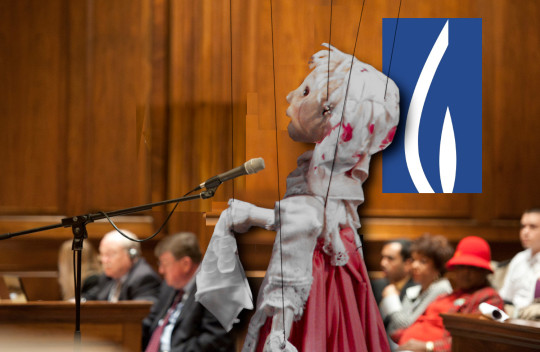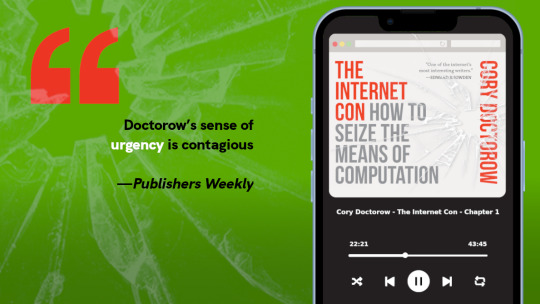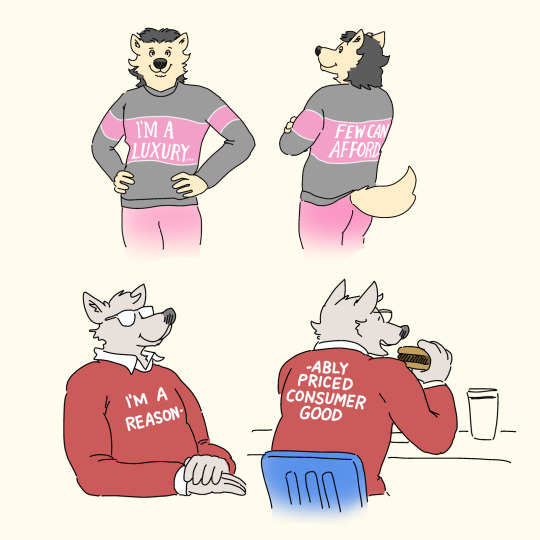#public utility
Text

Two months sounds about right. Lol.
4K notes
·
View notes
Text

3K notes
·
View notes
Text

#sky#electricity#overhead powerline#plant#line#slope#rural area#tree#landscape#monochrome photography#transmission tower#public utility#wire#monochrome#horizon#electrical supply#road#winter#cable#pole#electrical wiring#roof#grass#wind#light fixture#visual arts#street#ocean#vintage clothing#fog
11 notes
·
View notes
Text
AN OPEN LETTER to THE U.S. CONGRESS
Fund the Affordable Connectivity Program NOW!
130 so far! Help us get to 250 signers!
I’m a concerned constituent writing to urge you to fund the Affordable Connectivity Program or ACP. Digital connectivity is a basic necessity in our modern world and the internet must be treated as a public utility. We use the internet to apply for jobs, perform our jobs, receive telehealth medical treatment, and pay bills, and students use it to complete homework assignments. But for millions of people in rural and urban areas, and Tribal communities, the internet is a luxury they cannot afford. Failure by Congress to fund this program will force millions of households already on tight budgets to choose between being able to stay online or potentially losing access to this essential service. If Congress doesn’t act fast, funding for the Affordable Connectivity Program will run out and more than 22 million Americans -- 1 in 6 households -- will lose this vital service. The implications of this will be devastating. In 2019, 18% of Native people living on Tribal land had no internet access; 33% relied on cell phone service for the internet; and 39% had spotty or no connection to the internet at home on their smart phone. The ACP has enrolled 320,000 households on Tribal lands -- important progress. The largest percentage gains in broadband access are in rural areas. Nearly half of military families are enrolled in ACP, as are one in four African American and Latino households. Losing access and training on using computers and the internet will have devastating impacts on all these communities as technology becomes increasingly integral to work, education, health, and our everyday lives. Without moves to address tech inequality, low-income communities and communities of color are heading towards an “unemployment abyss.” The Affordable Connectivity Program has broad bipartisan support because it is working. As your constituent, I am urging you to push for renewed funding for the ACP before it runs out in the coming weeks.
▶ Created on April 11 by Jess Craven
📱 Text SIGN PJXULY to 50409
🤯 Liked it? Text FOLLOW JESSCRAVEN101 to 50409
#JESSCRAVEN101#PJXULY#resistbot#petition#Affordable Connectivity Program#Digital Divide#Internet Access#Broadband Access#ACP Funding#Congress Funding#Public Utility#Internet Equality#Telehealth#Telemedicine#Internet Inequality#Digital Inclusion#Internet For All#Rural Connectivity#Bipartisan Support#Internet Infrastructure#FCC#ACP Support#Digital Navigation#Online Education#Remote Work#Job Access#Telecommunications#Internet Service#Internet Affordability#Digital Equity
2 notes
·
View notes
Text
I know teachers say they don't have favourites... WE DO
17 notes
·
View notes
Text
Utilidade Pública: João Carvalho falando a real sobre o capitalismo e porque ele tá te deixando doente.
25 notes
·
View notes
Text
Flexible Rubber Coupling linking two 33 inch (838 mm) pipes. Large diameter flexible rubber couplings available for many sized pipes
#c900#sdr35#vcp#trench#stormwater#sewerage#sewer repair#sewer drain#sewer#pvc pipe#civil engineering#concrete pipe#public utility#wholesale waterworks#waterdistribution#waterworks#construction supply
0 notes
Text
https://www.cheese.com/
0 notes
Text
SoCal Gas spent millions on astroturf ops to fight climate rules

Today (19 Aug), I'm appearing at the San Diego Union-Tribune Festival of Books. I'm on a 2:30PM panel called "Return From Retirement," followed by a signing:
https://www.sandiegouniontribune.com/festivalofbooks

It's a breathtaking fraud: SoCal Gas, the largest gas company in America, spent millions secretly paying people to oppose California environmental regulations, then illegally stuck its customers with the bill. We Californians were forced to pay to lobby against our own survival:
https://www.sacbee.com/news/politics-government/capitol-alert/article277266828.html
The criminal scheme is spelled out in eye-watering detail in a superb investigative report by Joe Rubin and Ari Plachta for the Sacramento Bee, which names the law firms and individual lawyers involved in the scam.
Here's the situation: SoCal Gas is California's private, regulated gas monopoly. They are allowed to lobby, but are legally required to charge their lobbying activities to their shareholders, and are prohibited from raising customer rates to pay for lobbying.
The company spent years secretly violating this rule, in the sleaziest way possible: working with corporate cartels like the California Restaurant Association and BizFed, the monopoly paid BigLaw white-shoe firms to procure people who posed as concerned citizens in order to oppose climate regulations that are essential to the state's very survival.
The bill topped $36 million – and it was illegally charged to its customers, the Californians whose immediate health and long-term survival these efforts opposed. SoCal Gas refuses to disclose the full extent of the spending, as do its lawyer-procurers, who cite legal confidentiality and a First Amendment right to secretly seek to influence policy in their refusal to disclose their profits from this illegal conduct.
The law firms involved are a who's-who of California's most prominent corporate fixers, including Reichman Jorgensen and Holland & Knight. The partners involved have a long rap sheet for anti-climate dirty tricking, most notably Jennifer Hernandez, notorious in climate justice history for an incident where activists claim she posed as one of them, infiltrating a campaign to force corporate despoilers to clean up their pollution in order to sabotage it, while secretly on a wealthy, prominent landowner's payroll.
Hernandez claims to care about the environment and says that her longstanding, corporate-funded, extensive campaigns and lawsuits against state environmental regulations are motivated by concern over their impact on working people. Her firm, Holland & Knight, denies serving SoCal Gas in opposing gas regulations, but it received $594k in ratepayer dollars, and submitted comments opposing the rules on its own behalf. Those comments were nearly identical to the comments submitted by SoCal Gas.
Hernandez also represents an obscure organization called The Two Hundred for Home Ownership in "a flurry of lawsuits" over California Air Resources Board rules on pollution, seeking to overturn the state's landmark climate change regulations.
Two Hundred for Home Ownership was founded by Robert Apodaca, who told the Bee that Hernandez's work for him is pro bono and not funded by SoCal Gas, but his entry into the fray occurred just as SoCalGas was founding an astroturf group called Californians for Fair and Balanced Energy (C4BES), which pretended to be an independent organization, disguising its relationship with SoCal Gas.
Apodaca is also founder of United Latinos Vote, an organization that had been largely dormant for seven years, not receiving any donations, until 2018, when the California Building Industry Association gave it $99k. The CBIA is a large-dollar recipient of donations from SoCal Gas, and its CEO insists that it was not acting on SoCal Gas's behalf when it made its unpredented donation to Apodaca.
The CBIA donation to United Latinos Vote was forerunner to a flood of corporate donations from the likes of Chevron, Marathon and Phillips 66. Shortly after receiving this cash, United Latinos Vote ran a full page ad in the LA Times, accusing the Sierra Club of pushing for anti-gas appliance rules that would harm working class Latino families.
This ad, in turn, featured prominently in advocacy by the SoCal Gas front group C4BES, funded with $29.1m in ratepayer money, which it then spent seeking to link clean appliance rules with anti-Latino racism. A quarter of California's carbon emissions come from home gas use.
SoCal Gas is regulated by the California Public Utility Commission (CPUC), which tolerated this mounting illegal conduct for many years, even as the company circulated internal memos as early as 2015 discussing its plans to oppose electrification in the state on the basis that it constituted "a significant risk to our business."
But last year, CPUC fined SoCal Gas $10m. Now, CPUC's Public Advocate office has filed a damning, extensive report on SoCal Gas's unlawful conduct, seeking $80m in rate cuts to compensate Californians for the funds misappropriated to protect the company's shareholder interests:
https://docs.cpuc.ca.gov/PublishedDocs/Efile/G000/M517/K407/517407314.PDF
Additionally, the Public Advocate is demanding $233m in fines for the company's refusal to allow investigators to audit its books and discover the full extent of the fraud.
SoCal Gas is the nation's largest utility, but (incredibly), it's not the dirtiest. That prize goes to Ohio's FirstEnergy, which handed $60m in ratepayer dollars to state politicians in illegal bribes in exchange for coal and nuclear subsidies and cancellation of state climate rules. That scandal led to GOP speaker of the Ohio House Larry Householder being sentenced to 20 years in prison:
https://en.wikipedia.org/wiki/Ohio_nuclear_bribery_scandal
There is something extraordinarily sleazy about using ratepayers' own money to lobby against their interests. SoCal Gas and its Big Law enablers have funneled millions in Californian's money into campaigns to poison us and boil us alive, and they did it while using workers and racialized people as human shields.


I'm kickstarting the audiobook for "The Internet Con: How To Seize the Means of Computation," a Big Tech disassembly manual to disenshittify the web and make a new, good internet to succeed the old, good internet. It's a DRM-free book, which means Audible won't carry it, so this crowdfunder is essential. Back now to get the audio, Verso hardcover and ebook:
http://seizethemeansofcomputation.org

If you'd like an essay-formatted version of this post to read or share, here's a link to it on pluralistic.net, my surveillance-free, ad-free, tracker-free blog:
https://pluralistic.net/2023/08/19/cooking-the-books-with-gas/#reichman-jorgensen

Image:
Maryland GovPics (modified)
https://www.flickr.com/photos/mdgovpics/6635539089/
Jackie (modified)
https://www.flickr.com/photos/79874304@N00/197532792
CC BY 2.0
https://creativecommons.org/licenses/by/2.0/
#pluralistic#socal gas#california#climate emergency#climate denial#Reichman Jorgensen#california restaurant association#astroturf#Holland and Knight#puc#cpuc#california public utility company#fraud#Alice Walton#bribery#ohio#bizfed#Jennifer Hernandez#American Gas Association#The Two Hundred for Home Ownership#Robert Apodaca#Californians for Fair and Balanced Energy#C4BES#United Latinos Vote#Chevron#Marathon#Phillips 66#sacramento bee#sacbee#Joe Rubin
4K notes
·
View notes
Text
the post office should buy twitter
0 notes
Text
I know my experience is not universal, but I biked 5+ miles to do my errands today and I genuinely think we'd be much happier as a human collective if we increased residential density and switched to largely alternative modes of transportation.
#I don't know /how/ you'd do it exactly but this is my vision:#all cars are kept outside a certain perimeter. you can own a car and rent your outside-the-city parking spot;#or you can just reserve/rent a communally owned car when you need one#trucks and deliveries can cross the perimeter on a job but after the work is finished they must be returned to the exterior#inside the city perimeter you can: walk or run; bike or scooter or skateboard#or you can take public transit! there are many more buses and they can move much more freely in a car-less environment#there is also the option of cabs but - and this is key - the cabbies are unionized and the service is public#like the trains and buses.#there is no privately-controlled transit in the city. it belongs to everyone.#and because the lines of parked cars disappear from the streets; they are much better utilized#more kids play in the street. more block parties. more street fairs.#take back the space!!!#anyway this is my vision.#celestial emporium of benevolent knowledge
306 notes
·
View notes
Note
now I wanna know- why isn't drinking water free in the US?
Hi there friend! Thanks very much for taking the bait from this post. Buckle up, this is a long one.
If you want to put out a cistern and collect rainwater and use that, congratulations! Your water is free! Plus the cost of maintaining your cistern and keeping it clean. If you’re lucky enough to live somewhere with a high enough water table to have a well, then your water is also free + the cost of the well and well maintenance.
But if you want water to come out of your tap on demand and you can’t or don’t want to maintain a cistern and you can’t or don’t want to have a well… you need public water!
How do we get public water? Well, a government entity (usually. there are some private utilities, but that’s a different post. I have strong feelings) has rights to take water out of a river or a lake, or they have a reservoir, or they have access to an aquifer. Then they have to transport the water out of the source. This generally requires aqueducts or massive pipes, which are expensive and need to be maintained, which is also expensive. The pipe leading out of one of my utility’s reservoirs is 12 feet in diameter.
Does the water go directly from the source to your home? Nope! It gets piped to a water filtration plant! The process of modern water filtration is complicated but it involves both physical and chemical treatment to make sure the water isn’t carrying any parasites, harmful bacteria, or pollutants and it has the right pH. Not only are these filtration plants extremely expensive to build and maintain but the process of operating them is extremely expensive, both in terms of hiring skilled staff and having appropriate materials for the filters and chemical treatment.
After the treated water (called “finished water” in the biz) is ready it does get piped to your house.
If you use public water, do you know where your local water filtration plant is? No? That probably means it’s not in your immediate neighborhood, which probably means it’s several miles or more away. To get to your house, the water needs to travel through an extensive pipe network. These pipes are smaller but they have to remain pressurized so that no contaminants can get into the water on its way to your house. But pipes break! Especially if you live somewhere with a freeze/thaw cycle. Maintaining this pipe network is, you guessed it, expensive! It requires materials and extremely skilled workers who perform in very very difficult conditions. Plus lots of engineering to keep the whole system pressurized even when one part of it breaks. Oh, and you know what lots of pipes were made out of in the early 20th century? Lead! So all around the country utilities need to make extensive and costly infrastructure upgrades because now we know lead pipes are really freaking bad.
Okay, so you get the basic picture. And I haven’t even gotten into Safe Drinking Water Act compliance, but most of that happens at the filtration plant. Oo! Or desalinization because some utilities pull their water from the sea and need to take the salt out. I know basically nothing about this except that it is likely complicated and expensive to do at scale.
This is essentially why I get frustrated by people who argue “why should we pay for something that falls out of the sky?” Because finished water doesn’t fall from the sky and it sure as hell doesn’t fall from the sky into your faucet. (Side note: as a public utility official I have been screamed at by the “it falls from the sky” people. A thing I like about the private sector is that people scream at me a lot less.)
Now, there is a very strong argument to be made that because water is necessary for human life, it should be provided by the government for free to everyone. And just like the costs of roads or public education, this should be part of the public budget and paid for by taxes and no one should have a water bill. I don’t disagree with this. I’m sure that’s how it’s done in some countries.
I don’t have a well-researched answer on the history of water utilities but I do have some facts and some (very) educated conjectures. Water rights in the US are complicated (another separate post!) but they’re based on private ownership. Ever since white people came to this country people have been claiming ownership over water and charging each other money for taking water out of rivers or lakes or the ground. You can measure how much of it someone uses and charge them for it. Water is treated like a commodity because unlike other public goods, it *can* be treated like a commodity and then, you know, capitalism. Again, I’m not saying that’s right.
But as a society, if we believe that no one should have a water bill, then we need to figure out how to pay for all the very expensive steps in the process I outlined at the top. Could that just be taxes? Sure, if you have a system that supports taxes at that level. Do I believe that public funding of water infrastructure would be a fuckton better than a lot of things we use taxes for now? Absolutely! But that requires massive institutional change and this isn’t generally an issue that people know enough about to demand change.
If you read this far, congratulations! You now know more stuff about drinking water!
#hey if you enjoyed reading this consider reblogging it#it took me a while to write up#and I love educating people about this stuff#also if you have follow up questions please send them along#miro does asks#miro irl#drinking water#public utilities#water utilities#public water#long post
109 notes
·
View notes
Text

#photography#aesthetic#sky#plant#building#tree#house#electricity#gas#roof#overhead power line#road#cloud#city#suburb#siding#winter#cottage#twig#public utility#street#window#electrical supply
8 notes
·
View notes
Text


paparazzi
#rgg#ryu ga gotoku#masadai#ryu ga gotoku 7#yakuza like a dragon#yakuza series#yakuza 7#ryo aoki#masato arakawa#daigo dojima#snap sketches#OK THIS IS THE LAST ONE I SWEAR#then i hibernate..... i have a comm and other stuff i oughta do#i need to utilize the fact aoki's a public figure more often.. it can get so funny and juicy if i do it right
107 notes
·
View notes
Text
I have an important question
If someone posts a video on Tumblr, and this video happens to be a collection of scenes from a particular piece of media, would it be taken down for copyright reasons like it often is on youtube? Thank you.
5 notes
·
View notes

